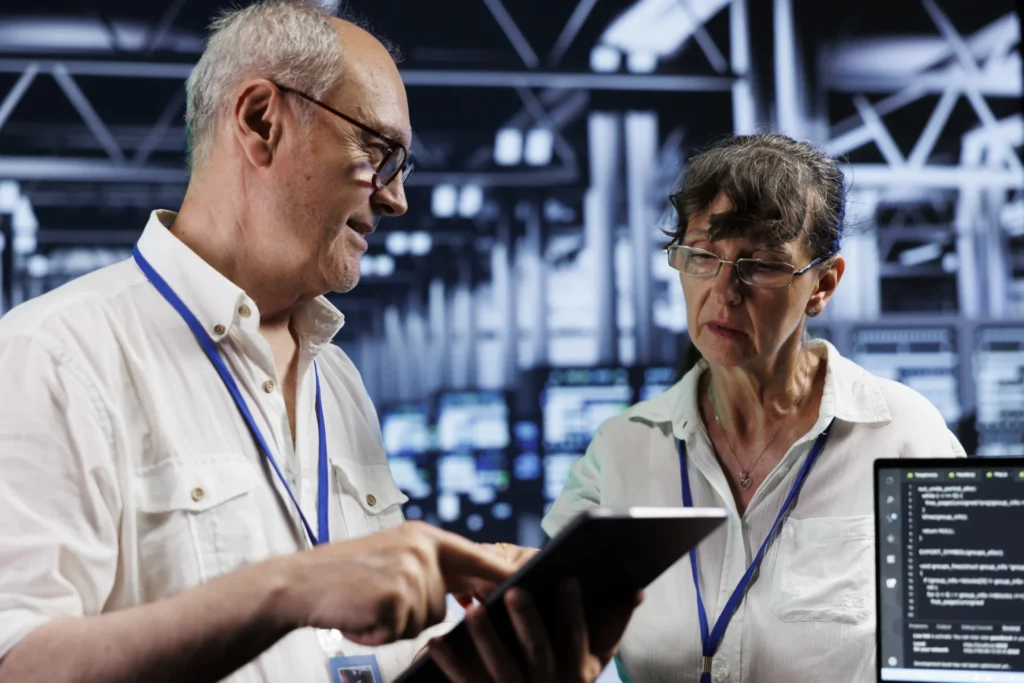Sustainability has become a buzzword in the business world as companies increasingly recognize the importance of environmental responsibility. In this era of climate change and resource depletion, businesses are pressured to adopt practices that benefit their bottom line and contribute positively to the planet. One avenue that holds great promise in achieving sustainability goals is automation. This article delves into how businesses can leverage automation to optimize resource usage and minimize waste, thus making significant strides toward a more sustainable future.
Understanding the Need for Sustainability in Business
Before delving into the role of automation in achieving sustainability, it’s crucial to understand why sustainability has become a critical consideration for businesses globally. Climate change, resource scarcity, and environmental degradation are urgent challenges. Consumers are increasingly conscious of the environmental impact of their choices and are inclined to support businesses that align with their values.
Governments and regulatory bodies are also tightening environmental regulations, pushing businesses to adopt eco-friendly practices. Moreover, investors recognize the financial risks associated with unsustainable practices, prompting a shift towards sustainable investing. In this landscape, companies prioritizing sustainability contribute to the planet’s well-being and secure a competitive advantage in the market.

The Role of Automation in Sustainability
Automation involves the use of technology to perform tasks without direct human involvement. In sustainability, automation can be a powerful tool to optimize processes, reduce resource consumption, and minimize waste. Here’s how automation contributes to sustainability in various aspects of business operations:
Energy Efficiency in Manufacturing:
One of the most significant contributors to environmental impact is the manufacturing sector. Automation in manufacturing processes can lead to substantial energy savings. Intelligent machines can optimize production schedules, regulate energy consumption, and minimize idle times, resulting in more efficient use of resources. For instance, smart sensors can adjust machinery settings based on real-time energy demand, ensuring that energy is used only when necessary.
Supply Chain Optimization:
Automation is crucial in optimizing supply chain management, which is pivotal for sustainability. Automated systems can streamline logistics, reducing transportation times and fuel consumption. Furthermore, real-time data analytics can enhance inventory management, minimizing the need for excess stock and reducing the environmental footprint associated with overproduction and waste.

Waste Reduction:
Automation can significantly contribute to waste reduction by improving precision in manufacturing processes. Automated systems can accurately monitor and control the production line, which is often unattainable through manual operations. This precision minimizes defects, rejects, and overproduction, reducing the overall waste generated by a manufacturing facility.
Water and Resource Conservation:
Many industries require substantial water and resource inputs. Automation can help optimize the use of these resources by precisely measuring and controlling consumption. For example, automated irrigation systems in agriculture can adjust water delivery based on real-time weather conditions and crop needs, preventing over-irrigation and conserving water resources.
Smart Buildings for Energy Conservation:
Automation extends beyond manufacturing to the design and operation of buildings. Intelligent building technologies leverage automation to optimize energy consumption by regulating lighting, heating, and cooling systems based on occupancy and environmental conditions. This reduces energy bills for businesses and minimizes their overall carbon footprint.
Case Studies: Real-world Examples of Automation Driving Sustainability
To illustrate the tangible impact of automation on sustainability, let’s explore a few case studies of businesses successfully integrating automation into their operations.

Tesla’s Gigafactories:
Tesla, a pioneer in electric vehicles, utilizes advanced automation in its Gigafactories to manufacture batteries and cars efficiently. Automation is central to Tesla’s production line, contributing to higher energy efficiency and waste reduction. The company’s focus on automation aligns with its commitment to sustainability by promoting electric transportation and minimizing the environmental impact of traditional manufacturing processes.
ABB’s Robotics in Packaging:
ABB, a multinational robotics and automation company, has implemented robotic solutions in the packaging industry to enhance efficiency and reduce waste. By automating packaging processes, ABB’s robots can precisely handle materials, minimizing packaging errors and ensuring optimal use of packaging materials. This results in less waste and contributes to the overall sustainability of the packaging industry.
Siemens Smart Grid Technology:
A global technology company, Siemens has developed smart grid solutions that leverage automation to optimize energy distribution. Smart grids use sensors and automation to monitor energy consumption in real-time, allowing for dynamic adjustments in the distribution network. This ensures a more efficient use of energy resources, reduces transmission losses, and promotes the integration of renewable energy sources into the grid.

Challenges and Considerations in Implementing Automation for Sustainability
While automation presents significant opportunities for achieving sustainability goals, there are challenges and considerations that businesses must navigate to ensure successful implementation:
Initial Investment Costs:
The upfront costs of implementing automation technologies can be a barrier for some businesses and significantly smaller enterprises. However, viewing these investments as long-term strategies that will yield returns through energy savings, waste reduction, and increased efficiency over time is essential.
Workforce Transition:
The shift towards automation may require reskilling and upskilling of the workforce to operate and maintain automated systems. Companies need to invest in training programs to ensure that employees can adapt to the changing technological landscape, fostering a workforce that is not only sustainable but also adaptable to future challenges.
Data Security and Privacy Concerns:
Automation relies heavily on data; businesses must address data security and privacy concerns. Robust cybersecurity measures must be in place to protect sensitive information, and companies should be transparent with stakeholders about data usage and storage practices.

Integration with Existing Systems:
Integrating automation into existing systems can be complex. Businesses must carefully plan the integration process to avoid disruptions to ongoing operations. Compatibility issues between new and existing technologies should be addressed to ensure a seamless transition.
Ethical Considerations:
As automation becomes more prevalent, ethical considerations come into play, particularly regarding job displacement. Companies must approach automation with a sense of responsibility, considering the social implications and implementing strategies to minimize negative impacts on employment.
The Future of Sustainable Automation
The integration of sustainability and automation is a dynamic and evolving field, and several trends are shaping its future:
Artificial Intelligence (AI) for Optimization:
The combination of automation and AI holds great potential for optimizing resource usage. AI algorithms can analyze vast amounts of data to identify patterns and make real-time decisions that optimize energy consumption, supply chain logistics, and overall resource efficiency.
Collaborative Robotics (Cobots):
Collaborative robots, or cobots, are designed to work alongside humans in a shared workspace. This collaborative approach enhances efficiency while maintaining the human touch. Cobots are increasingly adopted in manufacturing and other industries, creating a more sustainable and cooperative work environment.

Circular Economy Integration:
Automation can play a crucial role in advancing the concept of a circular economy, where products are designed for longevity, repairability, and recyclability. Automated systems can facilitate the disassembly and recycling of products, closing the loop on material usage and reducing waste.
Decentralized Energy Systems:
Automation is instrumental in developing decentralized energy systems, where local energy generation and storage are optimized based on real-time demand. This approach increases resilience and promotes using renewable energy sources, contributing to a more sustainable energy landscape.
Blockchain for Transparency:
Blockchain technology can enhance transparency in supply chains by providing an immutable and decentralized ledger of transactions. When coupled with blockchain, automation ensures that sustainability claims and certifications are traceable and verifiable, fostering trust among consumers and stakeholders.
Emerging Technologies and Innovations in Sustainable Automation
As the symbiotic relationship between automation and sustainability deepens, emerging technologies and innovative solutions redefine the landscape. These advancements offer new avenues for businesses to enhance their commitment to environmental responsibility further:

Internet of Things (IoT) Integration:
The Internet of Things involves connecting devices and systems to the Internet to collect and exchange data. In sustainability, IoT integration with automation enables real-time monitoring and control of equipment and processes. For example, in agriculture, IoT sensors can provide data on soil conditions, enabling automated irrigation systems to optimize water usage based on actual needs, leading to significant water conservation.
Renewable Energy Integration:
Automation is increasingly utilized to optimize the integration of renewable energy sources into the power grid. Smart grids, powered by automation, can balance the intermittent nature of renewable energy generation by adjusting energy distribution in real time. This not only maximizes the use of clean energy but also enhances the overall reliability and resilience of the energy infrastructure.
3D Printing for Sustainable Manufacturing:
3D printing, or additive manufacturing, revolutionizes production by creating objects layer by layer from digital models. This technology reduces material waste compared to traditional manufacturing methods. Automation in 3D printing enhances precision and efficiency, contributing to sustainable manufacturing practices by minimizing raw material consumption and waste generation.
Predictive Analytics for Resource Optimization:
Predictive analytics, powered by artificial intelligence, enables businesses to forecast trends and make informed decisions. When integrated with automation, predictive analytics can optimize resource usage by anticipating demand, supply chain disruptions, and equipment maintenance needs. This proactive approach minimizes inefficiencies and reduces the environmental impact of reactive decision-making.

Sustainable Packaging Automation:
The demand for sustainable packaging solutions is growing, driven by consumer awareness and regulatory pressures. Automation in packaging not only improves efficiency but also allows for the integration of eco-friendly materials and designs. Innovative packaging solutions, enabled by automation, can enhance product shelf life, reduce waste, and provide consumers with transparent information about the environmental impact of the packaging.
The Social Impact of Sustainable Automation
Beyond the environmental benefits, sustainable automation has significant social implications. The intersection of technology and sustainability can positively impact communities and contribute to a more inclusive and equitable society:
Job Creation in Sustainable Industries:
While there are concerns about job displacement due to automation, the shift towards sustainable practices often creates new job opportunities. Industries focused on renewable energy, circular economy initiatives, and sustainable technologies are likely to experience growth, fostering the creation of jobs that align with environmental and social values.
Community Resilience through Decentralization:
Decentralized energy systems, enabled by automation, empower local communities by giving them more control over their energy resources. This approach enhances community resilience, especially in remote or underserved areas, by reducing dependence on centralized energy grids and promoting locally generated renewable energy.
Access to Sustainable Technologies:
Automation can play a role in making sustainable technologies more accessible to a broader population. As innovations drive down the costs of automation and renewable energy solutions, more communities, including those in developing regions, can benefit from technologies that contribute to environmental sustainability.
Educational Opportunities in Green Technologies:
Integrating automation in sustainable industries creates opportunities for educational initiatives focused on green technologies. Training programs and academic courses that emphasize automation skills in the context of sustainability can equip the workforce with the knowledge needed for the jobs of the future.
Navigating the Path to a Sustainable Future
The fusion of automation and sustainability represents a pivotal moment in the evolution of business practices. While challenges persist, positive environmental and social impact opportunities are substantial. Businesses that embark on the journey of sustainable automation contribute to global efforts to combat climate change and position themselves as leaders in a world where sustainability is essential for success.
The ongoing development of technologies such as artificial intelligence, the Internet of Things, and 3D printing will continue to shape the landscape of sustainable automation. As businesses navigate this evolving terrain, a holistic approach that considers environmental, social, and economic aspects will be vital to creating a sustainable future for the planet and its communities. In embracing sustainable automation, businesses secure relevance in a changing market and play a critical role in building a resilient and regenerative global economy.

At iBridge, we are a trusted Digital Transformation Company dedicated to assisting our clients in unlocking the power of their data. Our expertise lies in collecting, managing, and analyzing data to provide our clients with meaningful operational control and improved profitability. With over a decade of experience, we have a proven track record of transforming complex information into actionable results.
We welcome the opportunity to discuss how we can help your firm achieve its goals and improve its bottom line.
Contact Us
Reach out today to schedule a discussion with an iBridge team member to learn how we can help your business in terms of growth and digital transformation.





